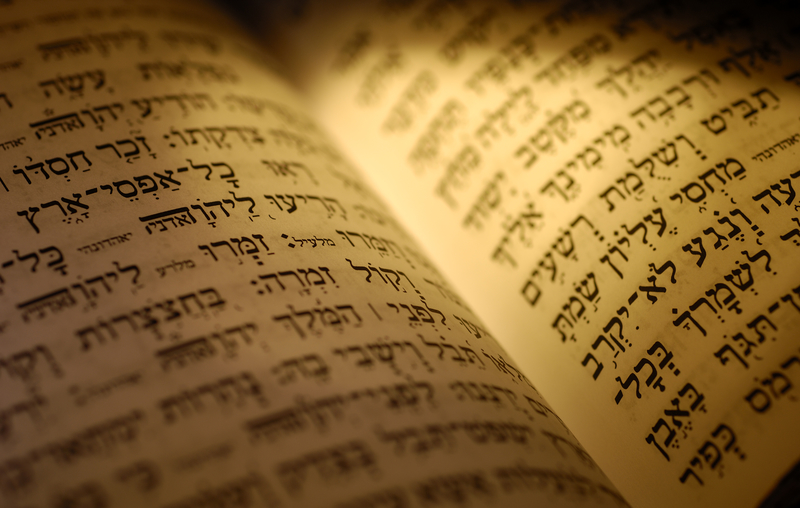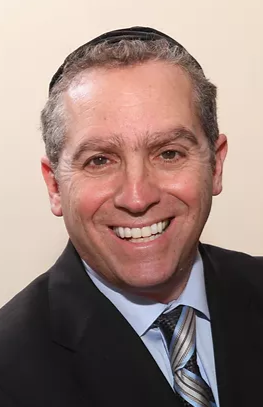
Parashat Shemot begins with the death of Yoseph and the shevatiim. This brings us to a new era, which is introduced with the words vayakam melech chadash al mitzrayim asher lo yadah et Yoseph. "A new king arose over Egypt, who did not know about Yoseph."
How can it be that the new king did not know who Yoseph was? Everyone knew that Yoseph had saved Egypt from the effects of the catastrophic famine that Hashem was planning for the region. The famine would have wreaked havoc on Egypt, had Yoseph not predicted its arrival when he interpreted Pharoah's dreams.
Masechet Sotah (11a) presents two possible explanations for this verse: either there was a new Pharoah, or the same Pharoah chose not to remember Yoseph and the young Israelite nation. Either way, this would harbinger the beginning of the first Galut and remain a pattern throughout our history – a pattern that B'nei Yisrael would have to endure until this very day. We would continue to suffer through the centuries, being displaced from one country to another and forced to keep moving from place to place throughout the ages.
The Jews nevertheless remained ambitious and innovative, and strove to excel and rise to the top in whatever areas were allowed them, making enormous contributions to their host countries when possible. They would then have to watch these adopted countries turn against them as virulent anti-Semitism swept through the population.
Expulsions, persecution, and tragic massacres of Jews are ever-present in our history, from the Ancient Greeks, Persians, and Romans right through to England, France, Sicily, Lithuania, Portugal, Spain, Germany and others. Each country would take on the attitude of: "What have you done for me lately?" This was anti-semitism at its worst when we began to assimilate into that country's culture. As part of Hashem’s plan the country would then rid themselves of their Jewish citizens.
We were guests in Egypt and so many other countries throughout our history until today here in America but we must know that our true home is in Israel despite what the United Nation and the rest of the world might argue.
This new king of Egypt’s advisors saw in the stars that the redeemer of the Jewish nation will be born in Egypt so he made a decree and told the Israelite midwives, Yochevet and Miriam (Moshe’s mother and sister): “When you deliver the Hebrew woman, and you see them on the birthstool; if it’s a son, you are to kill him and if it’s a daughter, she shall live.” But the midwives were G-d fearing and they did not do as Pharoah ordered them. Passuk 18 says: “The king of Egypt summoned the midwives and said to them, Why have you done this thing, that you have caused the boys to live?” Vatachayen et hayeladiym.
The Rabbis explain and we learn from this that even when the boys were ‘stillborn’ the midwives would pray that Hashem would revive them so it wouldn’t look like they were following Pharoah’s decree. Because of this Yochevet and Miriam were rewarded: “Because the midwives feared Hashem, so He made them Houses.” (Passuk 20) Rashi comments on this that since the midwives showed such devotion, they were rewarded with “Houses” which meant being the ancestors of the Kohanim andLevyim respectively. If Pharaoh succeeded in killing all the boys and there were only girls and the children would still be Jewish, but there would be no more Kohanim and Leviyim because that descent is paternal rather than maternal.
There’s a story that happened during the Holocaust that’s a modern day similarity to what Yochevet and Merium did during the decree in Egypt. Two women, Tzila Orlean and her young Bet Yaakov student Tillie Rinderly took positions in Auschwitz within the camp administration with the hope that they might help the Jewish inmates. These two women walked the tightrope of life and death on a daily basis. Tzila was a brilliant woman who even earned the respect of the Nazi murderers as she was the nucleus who inspired all the inmates around her.
She preached chesed and loving kindness to others. She and Tillie would advise various methods and strategies for rescuing fellow inmates right from under Dr. Mengele’s nose. Having no fear, they did what had to be done, regardless of mortal danger to themselves. Tillie who was barely 18, would go from one barracks to the next during the night, bringing much needed supplies and medicine from the infirmary.
Back and forth she would bring water to the fever stricken and sugar to the typhus victims lying half dead on the floor. These woman were part of an elite group of Jews whose fear of Heaven dictated their every movement. They feared nothing and no one, because they answered to a Higher Authority....Hashem!
Moshe is born and survives since his mother Yochevet hides him in a basket and sets him out on the Nile River. His sister Merium follows to see what will happen to him, and witnesses his retrieval by Bityah, the daughter of Pharoah. (2:5-6) “She saw the basket among the reeds and sent her maidservant to retrieve the basket. She opened it and saw him, the boy, and behold...a youth was crying.” Rashi asks, why does the Torah first call Moshe a boy and then a youth?
The commentaries ask: What is the difference between the cry of a boy and the cry of a youth and they answer that when the Torah calls him a boy, he was crying only for himself because he was hungry and had the needs of a baby. When he was referred to as a youth, he was then crying as a mature person for the needs of the people. Thus Moshe’s tremendous compassion was displayed from a very young age, crying for his Israelite brethern similar to the way we all cried for the tragic losses last week in our community of the family that suffered the terrible loss from the horrific fire.
Directly following this, the Torah says Moshe grows up in Pharoah's palace and he can't help but go out and feel the pain of his fellow Israelite slaves. The Torah uses the word vayigdal, he grew up, twice in reference to Moshe within two consecutive Pesukim. The first Pasuk (2:10) reads: Vayigdal hayeled vateviehu le’bat Pharoah – “The child grew up, and she brought him to the daughter of Pharoah” [after he’d been weaned by his own mother].
This refers to Moshe as a boy who grew up. Then again in the following Pasuk we read: vayehi ba’yamim ha’hem va’yigdal Moshe va’yetze el echav va’yar be’sivlotam – “Now it came to pass in those days that Moses grew up and went out to his brothers and looked at their burdens.” This second growing up refers to Moshe as a man who sees his fellow Israelites suffer and feels their burdens and pains! We use the term Gadolin two distinct ways. A child is considered a Gadol when he is old enough to be counted in a Minyan and an adult is considered a Gadol when he or she has matured to the point where they can feel the pain of a fellow Jew and are able to listen to his problems.
In describing the attributes and greatness of Moshe Rabenu, the Torah does not dwell at length on his background, describing only four incidents, all of which reveal his sensitivity to his fellow Israelites. 1) When he leaves the comforts of the palace to witness first-hand the suffering of his Israelite brothers. 2) When he sees an Egyptian beat an Israelite slave and, he makes sure no one is around, kills the Egyptian. 3) When he sees two Israelites fighting and involves himself in order to make peace between them. 4) When he comes to the rescue of the daughters of Yitro, who are being attacked by foreign bandits at the well.
We continue to see this character trait throughout Moshe's life as he displayed his sensitivity and empathy for others. As Moshe is shepherding his sheep, he's concerned for them and chases after even one stray sheep, and this leads him to the burning bush. Hashem speaks to Moshe there and tells him that he wants him to lead B'nei Yisrael out of Egypt. As much as Moshe wants to help his fellow Israelites, he refuses Hashem's request. After some deliberation we find out that the reason for his refusal is because he doesn't want his older brother Aharon to feel bad. He continues to debate with Hashem and will not give in until Hashem finally assures Moshe that his brother Aharon will be happy in his heart for him.
One day Rav Moshe Feinstein was in a rush to give a Shiur and a man stopped him to ask him for some Tzedakah. As he was reaching into his pocket to give the needy man some money, Rav Moshe spoke to the man. He stayed and listened to his problems for the next ten minutes or so. When his students questioned the Rabbi about the extra time he spent with the man after he gave him the Tzedakah, even though it meant being late for the Shiur, he replied, "The time that I spent listening to the man’s plight was of more value to him than the money I gave him".
We have to understand and learn from our Gedoliim that as Jews, we are obligated to have an extra sense of compassion for our Jewish brethren and we must help them by shouldering their burdens in addition to merely helping them with money. As Rabbi Diamond always taught us, we all have the same DNA as Avraham, Yitzhok and Yaakov: the DNA of Hesed and compassion which Moshe also felt when he saw his fellow Israelites suffering as slaves under the wrath of Pharoah in Egypt.
May we all remember that we are just guests in the country's that we live in today and realize that we are not at home until we are all settled back in our real homeland Eretz Yisrael. Also, we must understand that our own growth will occur when we are able to put our personal self interests aside and feel the pain of our fellow Jews as our Gedoliim of today and past years have always exemplified. Amen!
Parasha perspective By Jack E. Rahmey from the teachings and guidance of Rabbi Amram Sananes.







